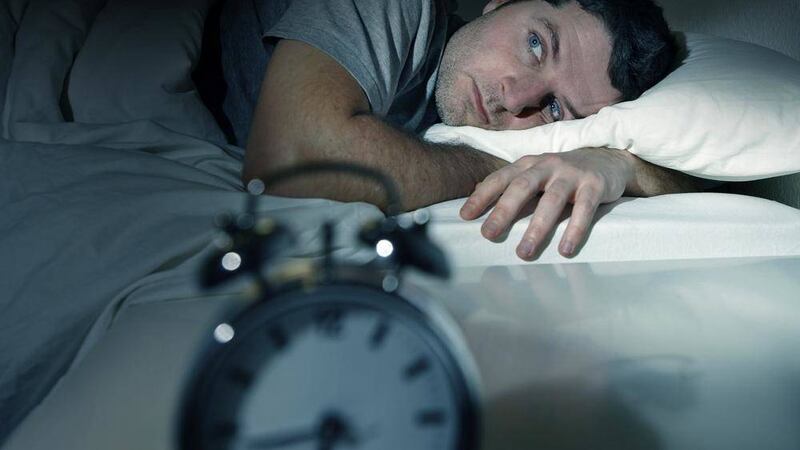WHEN was the last time you woke up feeling you'd slept 'like a baby'? Can't remember? Neither can we.
It's a harsh fact of life that as we get older, the quality of our sleep tends to get worse. So, as well as the usual stresses and strains causing us to toss and turn at night, there's an added evolutionary reason for not feeling that great in the morning: middle-aged insomnia.
For women, it often starts around the age of 50 and can be linked to hormonal changes triggered by the menopause. Men's sleep, however, starts to deteriorate from age 35.
Why this happens isn't entirely clear, although independent sleep expert Dr Neil Stanley suggests it could be something to do with our bodies needing deep sleep in order to grow and learn when we're young, so once we've done all that – or at least most of it – we don't need that wonderful unconscious haze any more.
:: HEALTHY BODY, HEALTHY MIND
Sleep is, however, paramount for good health. Indeed, it's so important that over-40s get the sleep they need, the Government is launching a new campaign to encourage middle-aged people to get more rest, over fears our hectic lifestyles are damaging health and even causing premature death.
"Sleep is vital for good physical and mental health," says Dr Stanley.
"It's the foundation of good health - if you get your sleep right, it's easier to diet, eat healthily and also exercise.
"We know lack of sleep causes increased risk of heart disease, depression, obesity and diabetes, while also increasing road traffic accidents. It's more important than good nutrition and exercise. Ignore it at your peril."
:: HOW MUCH SLEEP DO WE NEED?
A recent Sleep Council survey revealed that the majority (70%) of people now snooze for seven hours or less per night, with more than a quarter of us regularly experiencing poor-quality sleep. The number of those getting just five to six hours per night has risen dramatically in the past three years too, with a third of us now relying on so few hours in the land of nod.
Ultimately, how much sleep each of us requires varies from person to person, but there are ways to tell if you're getting all the naps you need.
"Recommendations say that for most of us, over seven hours is what's required, but it is genetically determined," continues Stanley.
"The amount of sleep you need is the amount that makes you feel awake and vital during the day. If you feel sleepy, you're not getting enough."
There is, however, a difference between feeling sleepy and feeling tired, Stanley adds: "Tiredness can be linked to low mood and motivation. Feeling sleepy is different. If you climb up three flights of stairs, do you need a sit down or a sleep?
"If you need a sleep, you're sleepy, if you need a sit down, you're tired."
On average, most of us require between seven and nine hours sleep, though anything between three and 11 is considered 'normal'.
"It's all about quality rather than quantity," suggests Neil Shah, founder and director of The Stress Management Society and author of The 10-Step Stress Solution.
"You can have nine hours sleep every night, however, if the sleep is disturbed, you won't feel any better than after having seven hours of quality sleep."
THREE RULES FOR BETTER REST
According to Dr Stanley, there are only three things you need when it comes to getting a good night's sleep.
:: A bedroom that's conducive to sleep
"Somewhere that's quiet, dark, cool and comfortable. Your bed is really important too - you need to spend money on a good bed."
:: A relaxed body
"You can't go to sleep if your body's tense."
:: A quiet mind
"You cannot fall asleep if your mind is racing or anxious. You know what makes you relax and chill out at the end of the day, whether it's music, camomile tea, yoga, a warm bath, reading a book.
"Do whatever works to quieten your mind. Most people's bedtime routine is to switch the telly off, have a pee, brush your teeth and expect sleep to miraculously find them. It won't happen."
"In this day and age, we are always connected to at least one technological device," adds Shah.
"For a good night's sleep, it is also important to create a real wind-down routine. Stay away from technology for at least an hour before bed. Constant exposure to artificial light is proven to reduce our melatonin levels, which causes bad sleep patterns."








